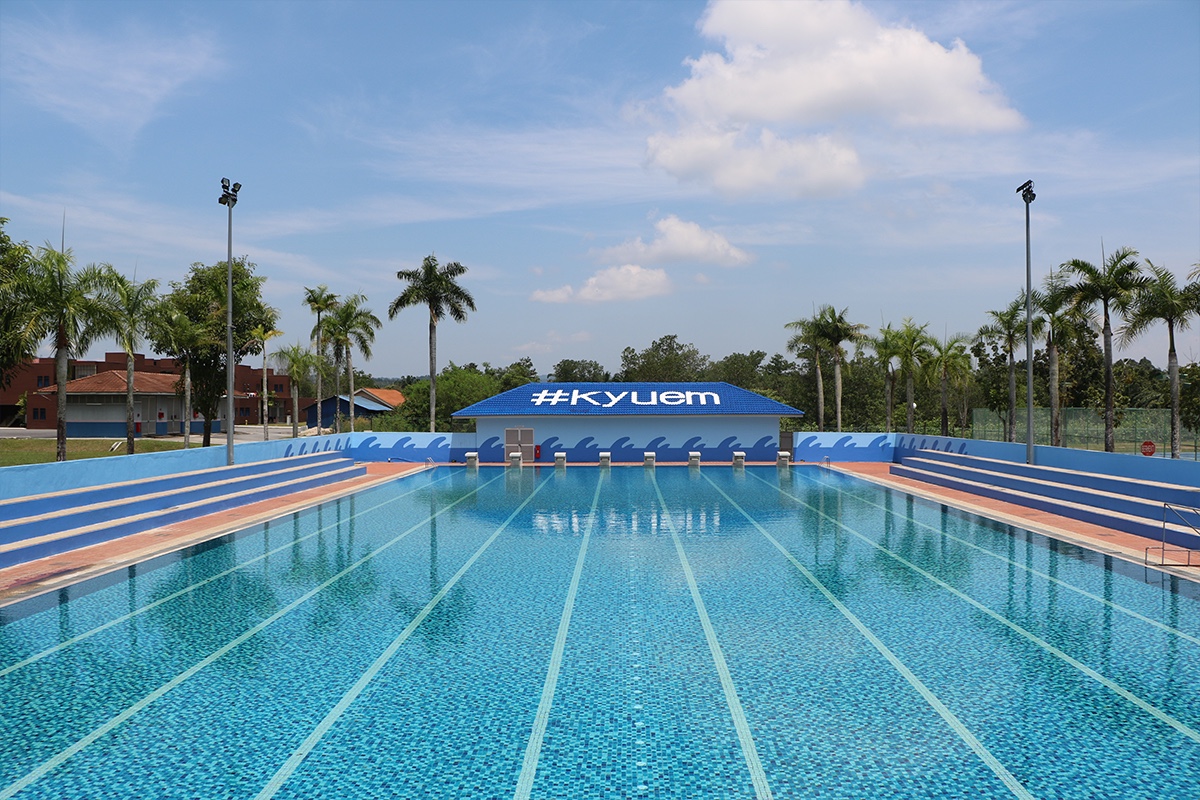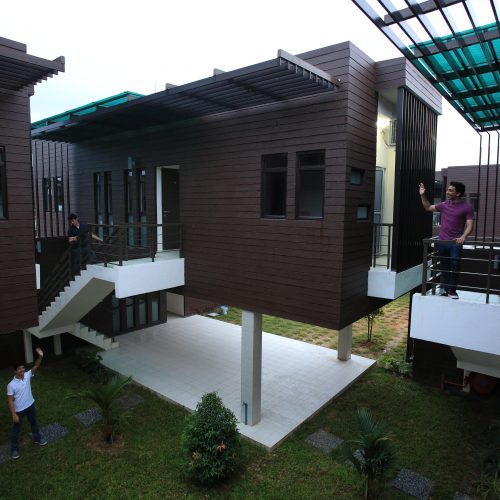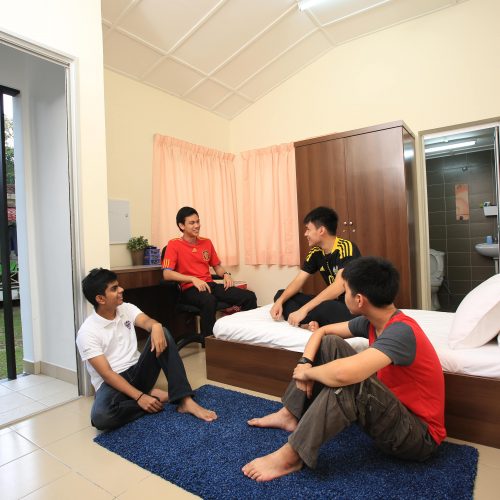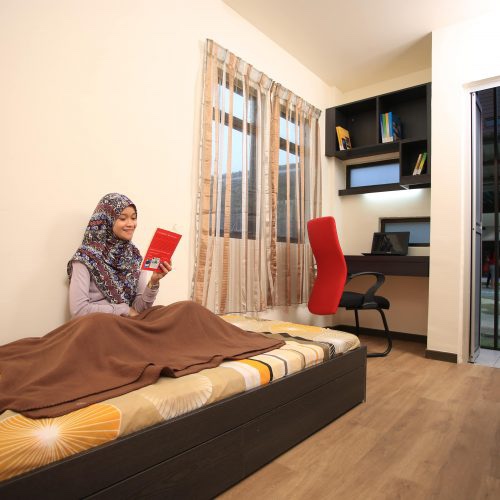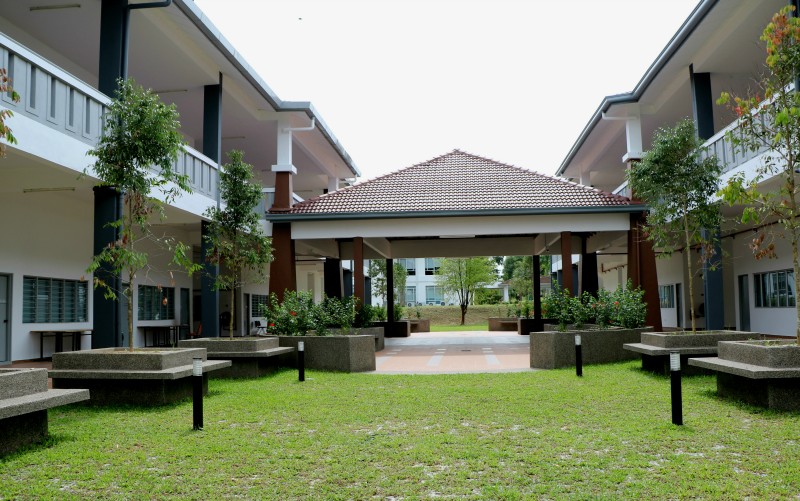The Ultimate Guide: Pre-University Programmes
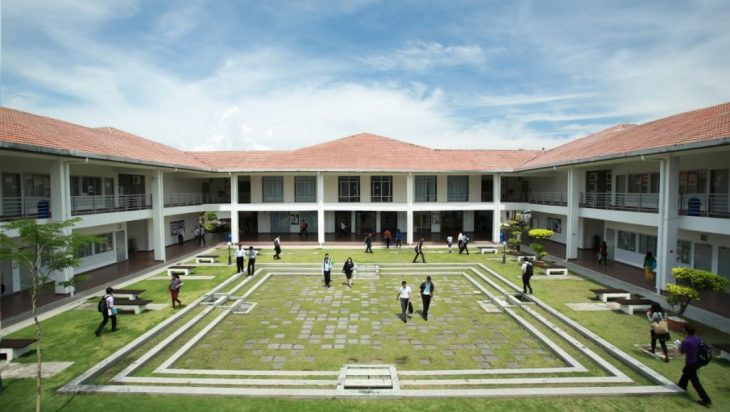
Stay updated with the latest intriguing stories for high achievers by following our Telegram channel here.
Finished your SPM? What is the next step in continuing your education? Applying for college or university can be tricky. But don’t worry, here is a guide on how to start your applications.
What course do you want to study?
The first question to ask is what do you want to study? Business, law, medicine, answering this question will help you in choosing the right college, university and education path for you.
We all know that sometimes expectations by others can be daunting. But, you know yourself best. It is not worth it to undertake a field that you have no interest in.
Where to Study?
There are many courses to choose from, but where are the best places to take them?
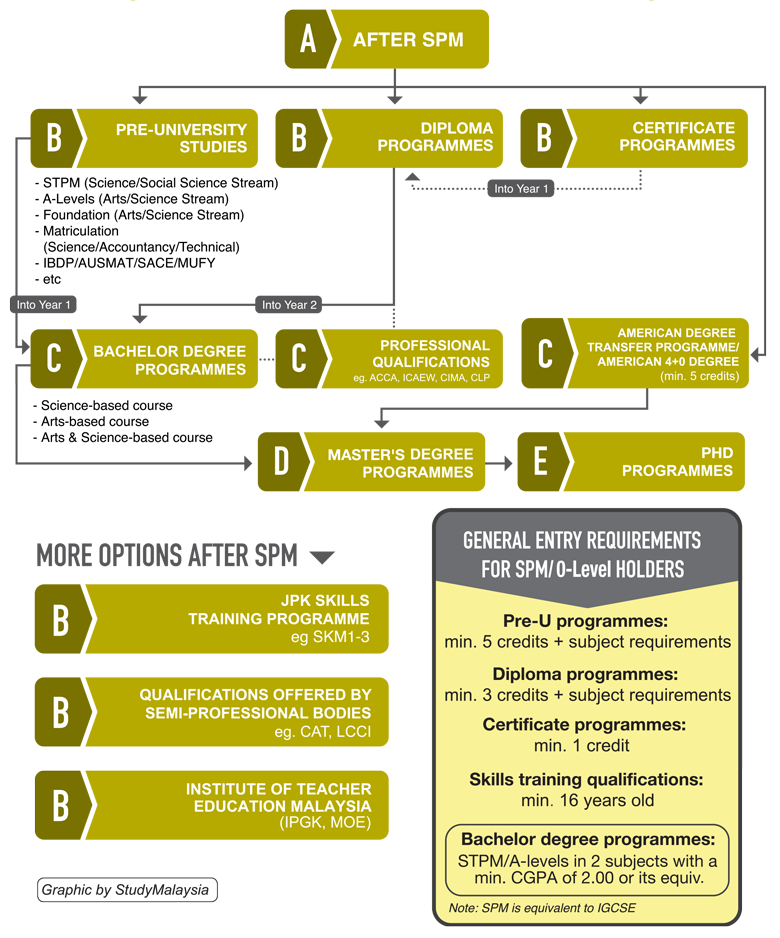
College and University
Public institutions are government-funded under the purview of the Ministry of Higher Education Malaysia. Public universities offer undergraduate and postgraduate programmes, and sometimes pre-university foundation and diploma courses.
Private universities and colleges are usually not operated nor owned by governments.
If you are considering a pre-U qualification, you have many options to choose from—STPM, A-levels, foundation to matriculation. The general entry requirement for a pre-U programme is 5 credits at SPM level or its equivalent.
However, some programmes may have specific subject requirements. The study duration at the pre-U level is between 10 and 24 months. This is the shortest route to a bachelor’s degree programme.
STPM
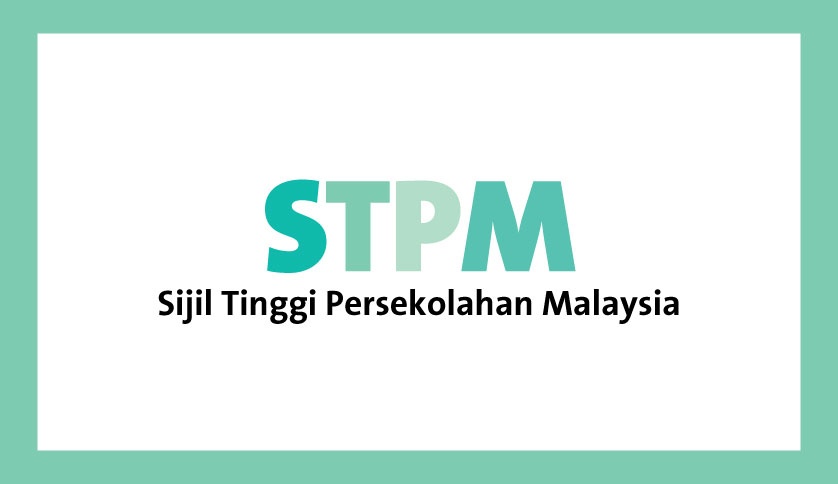
The Sijil Tinggi Persekolahan Malaysia or STPM is run by the Malaysian Examination Council. Students’ results will be monitored and endorsed by a representative from the Cambridge Assessment from the UK to uphold the standard and quality of this programme.
The programme also promotes holistic teaching where soft skills such as leadership, critical thinking and communication skills, are emphasised in the new curriculum. It is also a great option for cost-conscious students – less than RM1,000 for the entirety of the course. The length of the course is 18 months long.
Entry Requirements
- Compulsory credit in Malay Language and pass in History, and
- For Science stream – Total grade values of best three subjects (to be safe, your three Science subjects) do not exceed 18 units, or
- For Arts stream – Total grade values of best three subjects do not exceed 12 units
How is STPM Structured?
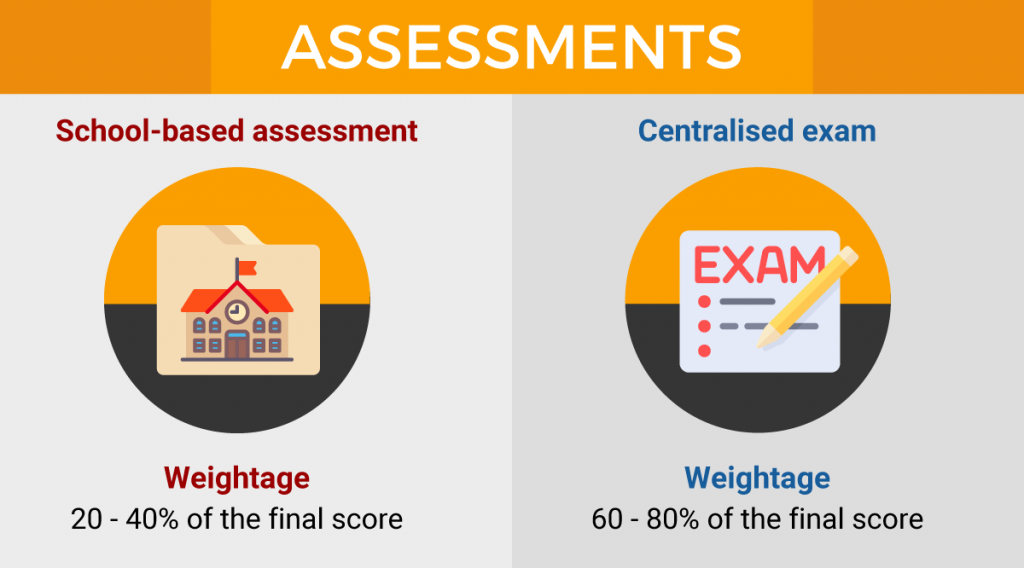
As part of your school-based assessment, you will need to carry out project work, field study and practical work. On the other hand, the centralised examination will consist of multiple-choice, structured, and essay questions.
Each grade carries a specific Subject Grade Point (SGP), with 4.00 (Grade A) as the highest. Your overall SGP will be aggregated by taking into account your four highest SGPs.
Subjects offered:
| Categories | Subject Titles in English | Subject Titles in Malay |
|---|---|---|
| Language and Literature | *Malay Language Chinese Language Tamil Language *Arabic Language Literature in English *Communicative Malay Literature | Bahasa Melayu Bahasa Cina Bahasa Tamil Bahasa Arab Kesusasteraan Inggeris Kesusasteraan Melayu Komunikatif |
| Social Sciences and Religious Studies | *Islamic Law *Islamic Studies *History *Geography *Economics *Business Studies *Accounting | Syariah Usuluddin Sejarah Geografi Ekonomi Pengajian Perniagaan Perakaunan |
| Sciences and Mathematics | Mathematics M (Management) Mathematics T (Technology) Information and Communications Technology (ICT) Physics Chemistry Biology | Matematik M Matematik T Teknologi Komunikasi dan Informasi Fizik Chem Biology |
| Arts and Sports | *Sports Science *Visual Arts | Sains Sukan Seni Visual |
| General Knowledge | *General Studies | Pengajian Am |
*Subject is taught in Malay
Normally, schools already have a set combination of subjects that are specifically designed for the Arts and Science streams respectively.
Some of the common set combinations of subjects are:
| Desired Tertiary Degrees | Recommended Subjects |
|---|---|
| Medicine, or other medical or life science courses | General Studies (compulsory) Mathematics T Chemistry Biology |
| Engineering or other applied science courses | General Studies (compulsory) Mathematics T Chemistry Physics |
| Accounting, Arts or Social Sciences | General Studies (compulsory) Mathematics M Economics Accounting |
| Business, Arts or Social Sciences | General Studies (compulsory) Mathematics M Economics Business Studies |
| Law or Education | General Studies (compulsory) Malay Language Geography History |
Pros of taking STPM
First of all, STPM is very affordable. The basic fee for the examination is RM120, while the fee for each subject is RM90. If you intend to re-sit a paper, that would be RM50. STPM is considered one of the cheapest routes to tertiary education since you will only need to pay less than RM1,000 for the entire course.
Secondly, the programme is globally recognised, particularly those within the Commonwealth of Nations as well as in the U.S.
Lastly, you can resit for your examinations. If you do not feel satisfied with the grade that you have obtained in a particular term, you are allowed to retake your examination to improve your score!
Most public high schools offers STPM.
A-Levels

The A-Levels programme is the most popular pre-university programme offered by private higher education institutions in Malaysia and is based on the UK education system. You can think of it as the UK’s STPM and is awarded by the likes of Cambridge International Examinations (CIE) and EDEXCEL.
A-Levels is 100% exam-based, so you would be pretty much reliving your SPM days. But unlike SPM where students usually take 9 subjects, you only need to take a minimum of 3 subjects.
Entry Requirements
Similar to other pre-university courses, A-Levels in Malaysia requires a minimum of 5Cs at SPM, O-Level or equivalent. Certain A-Levels subjects, such as Physics, Chemistry, Biology and Further Mathematics, have subject prerequisites that you need to fulfil.
How is A-Levels Structured?
A-Levels consists of 2 parts, the Advanced Subsidiary (or better known as AS Level) and A2 Level. Both are 100% exam-based and contribute 50% each to your final grade.
If you already have an idea of the degree you would like to pursue after A-Levels, this list of recommended and essential subjects will help you choose your subject combinations.
| Degree | Recommended Subjects |
|---|---|
| Accounting, Business, Economics, Finance | Essential: Mathematics & Economics Recommended: Business Studies, Accounting, Law, Psychology |
| Actuarial Science | Essential: Mathematics Recommended: Further Mathematics, Economics, Physics |
| Biochemistry, Biomedical Science, Nutrition | Essential: Chemistry, Biology & Mathematics Recommended: Physics |
| Computer Science | Essential: Mathematics Recommended: Physics, Further Mathematics, Computing |
| Engineering | Essential: Mathematics & Physics Recommended: Chemistry, Further Mathematics |
| Law | Essential: None Recommended: Mathematics, Economics, Law, English Literature, Accounting |
| Medicine, Dentistry & Pharmacy | Essential: Chemistry, Biology & Mathematics Recommended: Physics |
Most universities would accept that you take only three subjects. However, if you are planning to study abroad and aim to get into top tier universities (especially in the UK), there are times when it may be advantageous to take 4 subjects. This is because some top universities may demand 3A*s.
Pros of Taking A-Levels
Like STPM, it is globally recognised, well-known as the gold standard of pre-university courses and is accepted by many top universities around the world. Other than the UK, countries such as the US, Australia, Germany and more.
Secondly, A-Levels allows you to focus on only a few subjects and gain in-depth knowledge in your chosen subjects. Lastly, it keeps your options open when choosing an undergraduate degree.
KYUEM
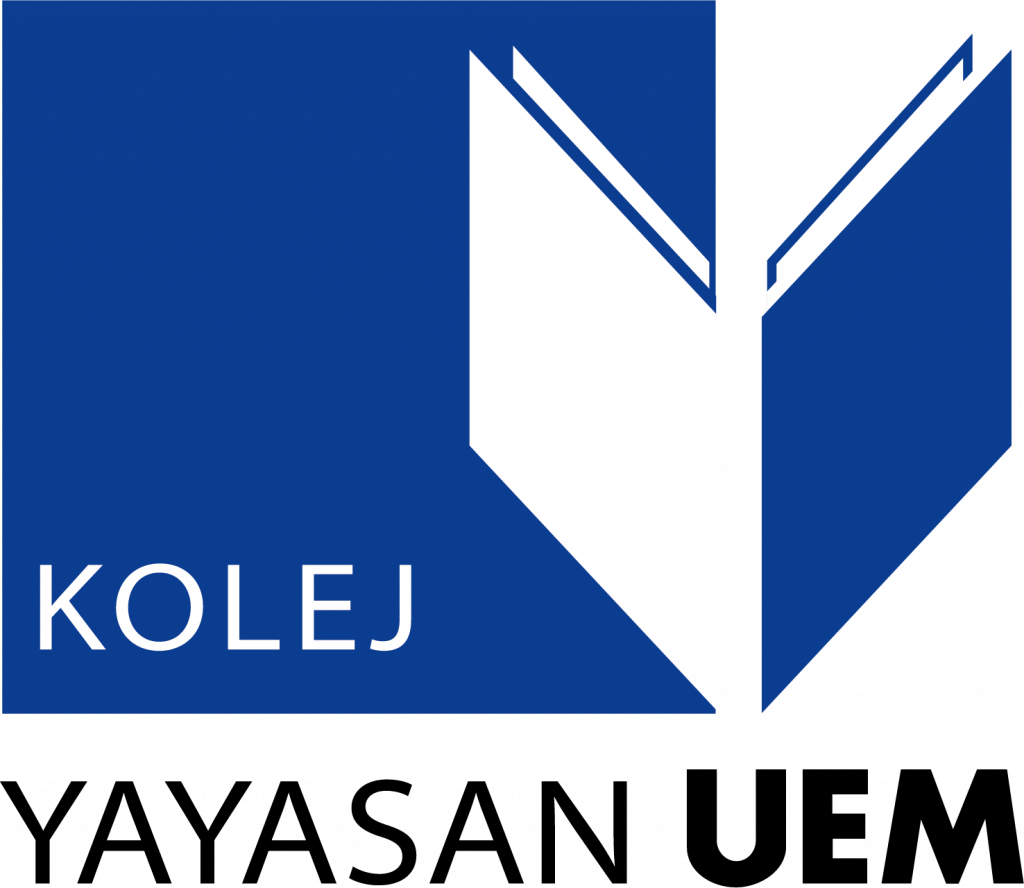
It has a reputation for academic excellence with almost 60% of students scoring straight As in 2021. It is one of the few local colleges awarded the Cambridge International Fellowship status.
Kolej Yayasan UEM or commonly known as KYUEM is a premier residential college that specialises in A-Levels. Having sent students to Oxford, Cambridge, LSE, Imperial, UCL and top UK and US universities for the last 24 years, KYUEM is usually the preferred choice for A-level education.
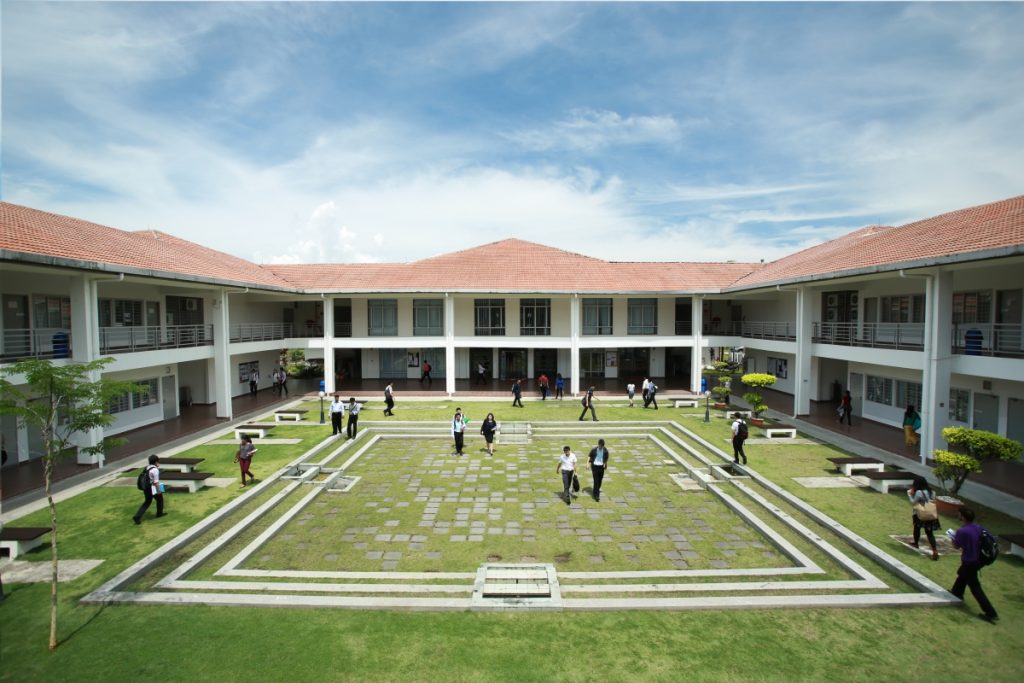
The school is located in Lembah Beringin, Selangor about an hour drive from Kuala Lumpur. The resort-style campus offers premium facilties and accomodation where students get private rooms in chalets and apartments. Its intakes are January and July.
Taylor’s College
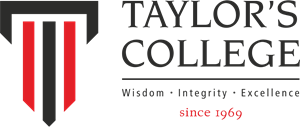
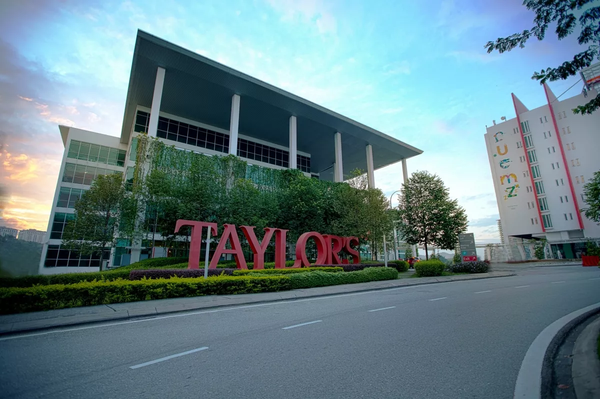
Taylor’s College has an excellent track record with more than 3,700 students scoring 3As and above (2012 – 2021).
The college is located in Subang Jaya, Selangor. Its intakes are February, April and August.
INTEC
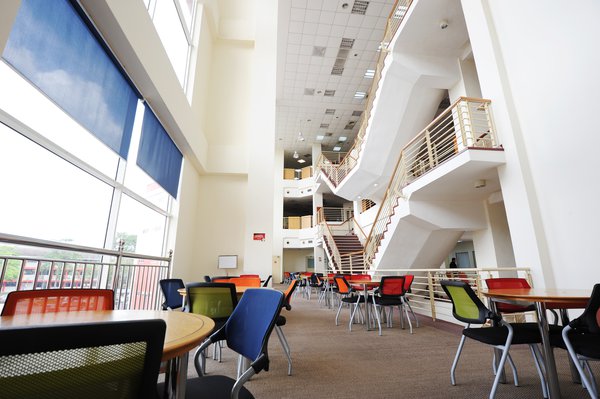
International Education Centre or INTEC has had high performing standards with over 25 years of experience.
The campus is located in Shah Alam. Its intakes are January, March, July and September.
Foundation Programmes
A foundation programme is basically an introductory course to the degree of your choosing. There are foundation programmes in arts, business and science. It also only takes a year to complete and is monitored by the college itself rather than another central body like Cambridge administers A-Level and the South Australian education board administers SAM.
Foundation in Arts is a pre-university programme that focuses on topics related to arts and humanities. Upon successful completion, it gives you entry into non-science degrees such as Business & Accounting, Communication & Tourism.
Foundation in Business on the other hand focuses on majors such as Finance, Accounting, Business Administration, Marketing, and International Business, just to name a few.
Like high school, you would have to take core and elective subjects. Elective subjects would cater more to your intended undergraduate degree. For example, if you are planning to pursue Business, electives would typically be Economics and Accounting.
Foundation in Science concentrates on physics, chemistry, biology, mathematics and information technology.
Entry requirements for foundation in science:
SPM (or equivalent): Minimum 5Cs including Mathematics and 2 Science subjects
Pros of Foundation Year
All foundation year programmes have similar pros or advantages over other pre-u programmes.
Firstly, it gives you a head start on your degree as you are already focusing on the subjects that will be taught in your degree.
Secondly, it is the fastest way in finishing college. Most people taking A-Levels or the International Baccalaureate would take two years to finish whereas foundation programmes only take one.
Lastly, you may find that some universities offer more generous scholarships for their foundation courses. You may even get a discount for both your foundation and degree with your SPM results.
International Baccalaureate

The International Baccalaureate (IB) Diploma Programme is a two-year educational programme primarily aimed at 16-to-19-year-olds in 140 countries around the world.
IB is a pre-university programme from Geneva, Switzerland and prepares SPM or O-Level leavers for entry into university. The course is 24 months long and known to be an academically challenging course, requiring you to take a wide range of subjects.
How is IB Structured?
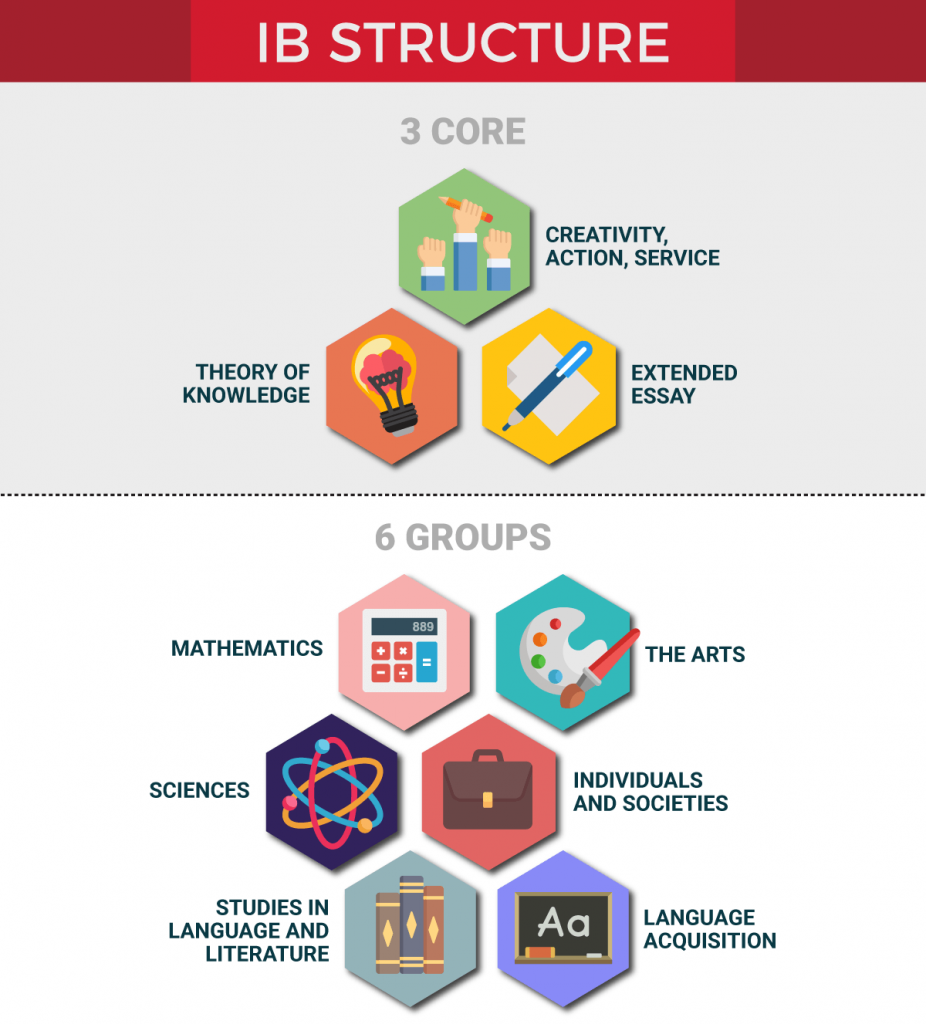
You will take a total of six subjects, one each from the following six broad groups:
- Group 1: Language and Literature (e.g. English)
- Group 2: Language Acquisition (e.g. Spanish, German, French)
- Group 3: Individuals and Societies (e.g. Economics, Geography, History)
- Group 4: Sciences (e.g. Biology, Chemistry, Physics)
- Group 5: Mathematics (e.g. Mathematics, Mathematics Studies)
- Group 6: The Arts (e.g. Music, Theatre Arts, Visual Arts)
The most common subjects that are available at IB programmes in Malaysia are:
| Group | Subjects |
|---|---|
| Language and Literature | English, Malay |
| Language Acquisition | Malay, Mandarin, French, Spanish |
| Individuals and Societies | Geography, History, Economics, Business and Management, Psychology |
| Sciences | Biology, Chemistry, Physics, Environmental Systems & Societies |
| Mathematics | Mathematics, Mathematical Studies |
| The Arts | Visual Arts, Theatre Arts, Music and Film |
Within each of the subject groups above, you have a choice of choosing either Higher Level (HL) or Standard Level (SL). Higher Level (HL) subjects normally require more studying time (total 240 hours of classes) compared to Standard Level (SL) subjects (total 150 hours of classes).
In total, you need to take three subjects at Higher Level (HL), and three at Standard Level (SL).
In addition, you must also complete the following courses, often known as the three core components of the IB programme:
(1) Theory of Knowledge (TOK)
This is an interdisciplinary course, linking all six subject groups. It is intended to promote critical and creative thinking on knowledge gained, both inside and outside of the classroom. You will be assessed based on a 1,200 – 1,600 word essay and presentation.
2) Extended Essay
This component encourages independent research skills. You will be required to produce a 4,000-word research paper on a topic of your own choice based on any of the IB subjects studied.
3) Creativity, Action, Service (CAS)
This component teaches you to engage and collaborate with others and the local community through:
- Creativity: Arts, music, writing and other experiences that involve creative thinking
- Action: Physical activities, such as training or learning a new sport
- Service: Unpaid and voluntary work for the community
You are expected to clock in at least 150 hours for projects under this component.
You will be graded on a combination of internal assessment, final exams plus the IB core components.
Grading system
(1) Internal Assessment: You will be required to complete internal assessment tasks (oral presentations, practical work, written papers), which contribute anywhere between 20% to 50% of your total grades. Internal assessments are marked by your school teachers.
(2) External Assessment: Generally, you will take 2 – 3 papers per subject at the end of the 2-year programme. These examinations are marked by external IB examiners.
The grades awarded for each subject ranges from 1 (lowest) to 7 (highest).
For example, if you achieve the highest score for each subject, your score will be 6 subjects x 7 points per subject = 42 points.
(3) Core Components: You will also be awarded up to 3 points for your combined results in the Extended Essay and Theory of Knowledge courses. Creativity, Action, Service (CAS) – the remaining element in the IB core – does not contribute to the points, but authenticated participation is required.
This means that the maximum score that you can obtain is 45 points. The IB Diploma is awarded to students who gain at least 24 points of the total 45 points.
Pros of taking IB
First of all, the IB programme promotes critical and independent thinking with its unique Theory of Knowledge (TOK) component and continuous internal assessment.
Secondly, it is a well-rounded programme that offers a full range of subjects, including foreign language, sciences and art, in addition to creative and physical activities, as well as community service.
Lastly, IB is accepted by over 100 countries worldwide, including Yale, Oxford and Cambridge.
Where to study IB?
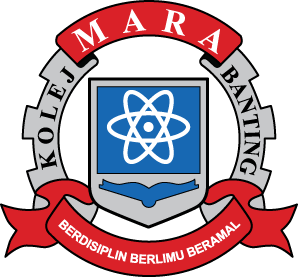
Kolej MARA Banting (KMB) is a boarding school under the MARA organisation.
Since 1990, KMB has received recognition from the International Baccalaureate Organisation (IBO) to conduct the International Baccalaureate Diploma Programme and is now one of the IB World Schools.
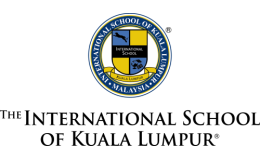
The International School of Kuala Lumpur curriculum is US-based and offers students the chance to earn a High School Diploma, an International Baccalaureate diploma, and to attend Advanced Placement programs.
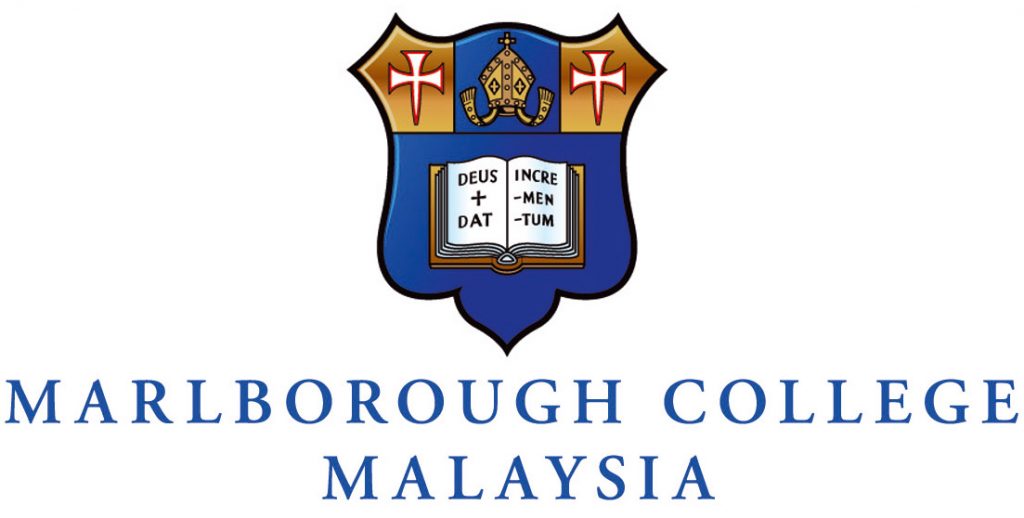
Marlborough College Malaysia is a co-educational British international school in Malaysia for boarding and day pupils. The school is the sister school of Marlborough College in Wiltshire, UK.
The school is located in Nusajaya, Johor.
AUSMAT and SACE

Western Australian Certificate of Education (WACE) also known as the Australian Matriculation (AUSMAT) and the South Australian Certificate of Education (SACE) International (also known as SACE International or South Australian Matriculation (SAM)) are pre-university programmes that are based on the Australian education system.
While both are very similar, AUSMAT is governed by the Western Australian government, whereas, SACE is governed by the South Australian government.
Furthermore, AUSMAT’s course structure comprises 50% coursework and 50% final exams while SACE comprises 70% coursework and 30% final exams.
Pros of taking AUSMAT / SACE
Both are at the same level of qualification as other pre-university programmes such as STPM, A-Level, Canadian Pre-University (CPU) and Foundation programmes.
Both programmes involve coursework and exams and because of that, they act as excellent platforms in teaching you how to manage your time, workload and stress.
Both AUSMAT and SACE International are recognised locally (private universities only) and internationally, including universities in the United States of America (USA), the United Kingdom (UK) and many parts of Asia.
ATAR
When you enrol in an AUSMAT or SACE International programme, your final results will be based on a ranking system known as the Australian Tertiary Admission Rank (ATAR). ATAR is an indicator of how you have performed relative to all students who have taken Australian Matriculation courses.
It’s worth remembering that ATAR is a rank, not a score — it shows your ranking amongst your peers. For example, if you are ranked ATAR 80.00, it means that you’ve performed better than 80% of your peers, putting you in the top 20% among your batch.
Where to study AUSMAT / SACE?
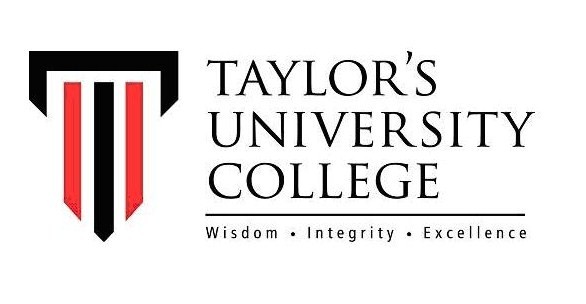
Taylor’s College’s intake for SACE are January, April and August and require a minimum of 5 credits including English for SPM, IGCSE or other equivalent qualifications.
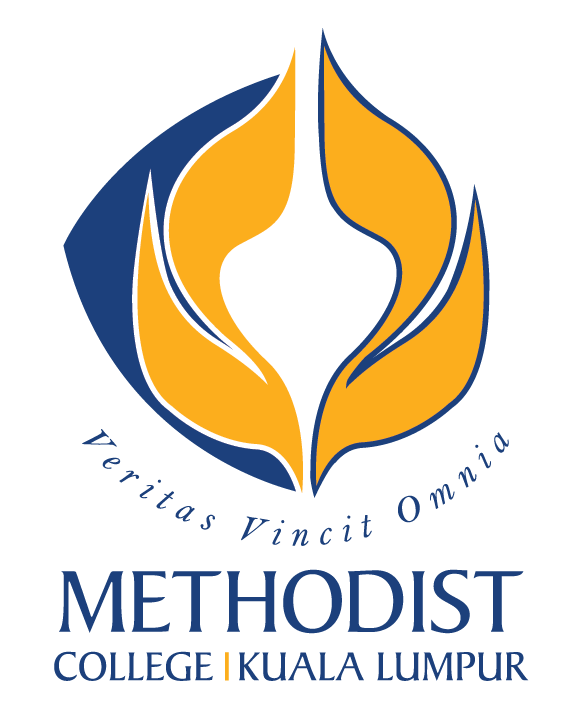
Methodist College Kuala Lumpur’s intake for AUSMAT are in January and August and require a minimum of 5 credits for SPM, IGCSE or other equivalent qualifications.
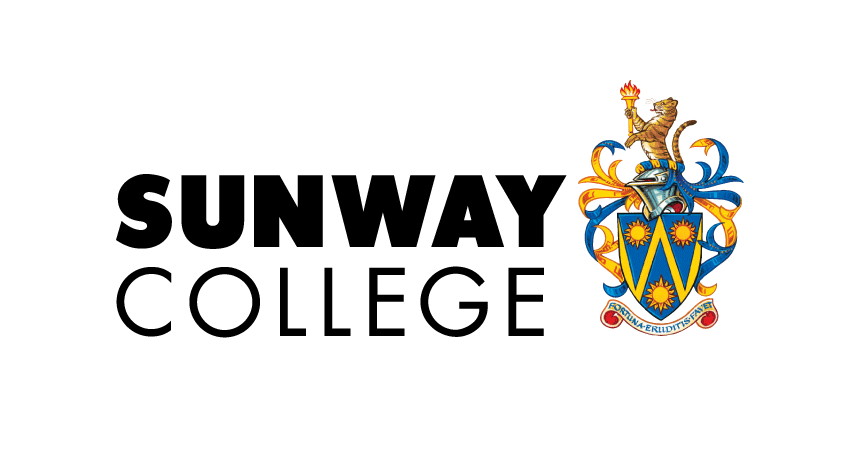
Sunway College’s intake for AUSMAT are in January, March, April and September and also require a minimum of 5 credits including English for SPM, IGCSE or other equivalent qualifications.
Accounting and finance qualifications
If you are interested to pursue a finance qualification, there are a few potentially fast track routes you can take after SPM through ICAEW, ACCA programmes. Having a professional qualification in accountancy may accelerate your career in the corporate world.
Check out Cemerlang’s comprehensive guide on ICAEW, ACCA and CFA here.
Conclusion
The most important thing to consider when choosing your pre-university pathway is to know the field you want to pursue and which pre-university can get you there. Then, you should determine which programme and insitition provides you the best value for money.
The choice is yours. Good luck!

